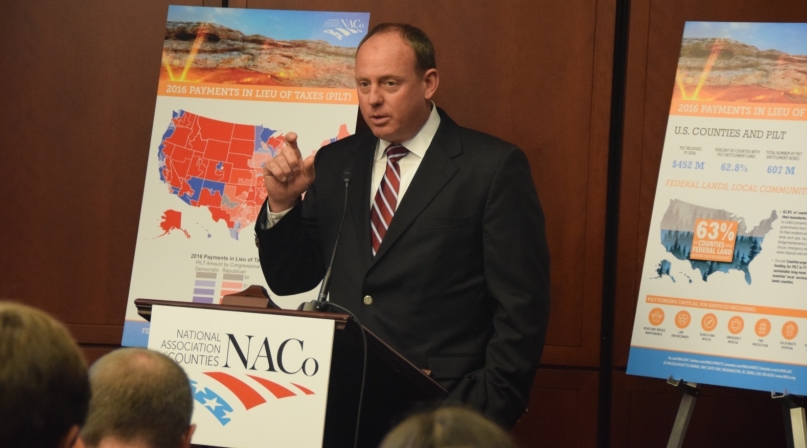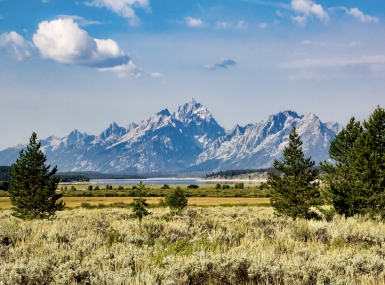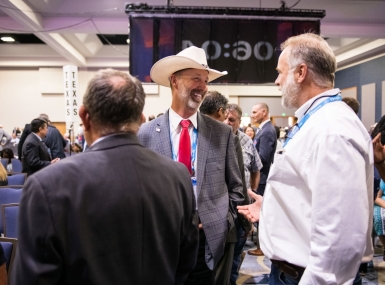Hill rally keeps spotlight on PILT

PILT's $480 million promised by both chambers, not yet secured
Roughly half of Jackson County, Ore. is owned by the federal government, and that hit to the tax base makes life difficult for Commissioner Doug Breidenthal and his colleagues. But compared to some of their neighbors, they’re doing okay.
“We have a county (in Oregon) that is on the brink of bankruptcy,” he said. “Another county can’t staff its sheriff’s office to answer 9-1-1 calls.”
Jackson County is the size of Connecticut; the federally-owned land within its borders adds up to the size of Rhode Island. Because the county can’t tax that land, the federal government pays a pittance though PILT.
“The compensation that we receive is only about 91 cents per acre, but that has to be able to fund law enforcement, that has to be able to fund fire fighting, search and rescue…” Breidenthal said. “It’s reached critical mass in Oregon.”
Breidenthal joined other county officials and members of Congress representing districts and states with large proportions of federally owned land at a Capitol Hill briefing, Sept. 8, to push for a permanent funding source for the payments-in-lieu-of-taxes program, or PILT. PILT is a permanent program but subject to the appropriations process. Though both the House and Senate have committed to fully funding PILT at $480 million, the appropriations bill has a long way to go to be signed by President Obama, and counties are helping push PILT across the goal line.
“What do you do in a county that’s 90 percent controlled by the federal government,” Rep. Chris Stewart (R-Utah) asked. “What do families do, what opportunities do their children have if they can’t ranch, timber or work in coal mines?”
What helps keep PILT on the margins of Congressional business, according to Sen. Ron Wyden, (D-Ore.), author of the Secure Rural Schools (SRS) program, is that turnover means the vast number of newer members from Eastern states with little to no federal land aren’t familiar with the program or counties’ struggles to fund operations.
“We have so many new members of Congress that we have a huge education job in front of us,” he said. “A lot of my new colleagues in the Senate do not come from states that have a large amount of publicly owned land. Most weren’t here when SRS was authored.”
The best tactic, Rep. Paul Gosar (R-Ariz.) said, was to reach out and explain it to them.
“We have to teach our Eastern brethren why it’s so important,” he said.
Gosar offered two opportunities for progress diversifying what public lands could do. The Public Land Renewable Energy Development Act and Herd Act would each generate a quarter of its proceeds to counties.
Chelan County, Wash. Commissioner Ron Walter said counties shouldn’t apologize for wanting to use their natural resources productively, and pointed out that the cost burden on counties to provide search and rescue services on federal lands could drain budgets after too many helicopter flights. Chelan County is one of three in Washington state that owns a helicopter.
Wyden put PILT’s position in perspective relative to the business of legislating.
“Most members of Congress don’t get up in the morning and say I want to spend my day being rotten to those communities where the federal government owns the land,” he said. “They wake up and say ‘I’ve got a real busy agenda...The chamber of commerce is coming in…that’s what we’re competing against.”
Stewart rejected the notion the western counties were mooching.
“It’s not welfare when you take the asset in the first place,” he said. “We just want pennies on the dollar.”

Attachments
Related News

House Passes Historic Outdoor Recreation Legislation
The U.S. House passed the bipartisan EXPLORE Act (H.R.6492) on April 9 to boost outdoor recreation opportunities on public lands and aid local economies


